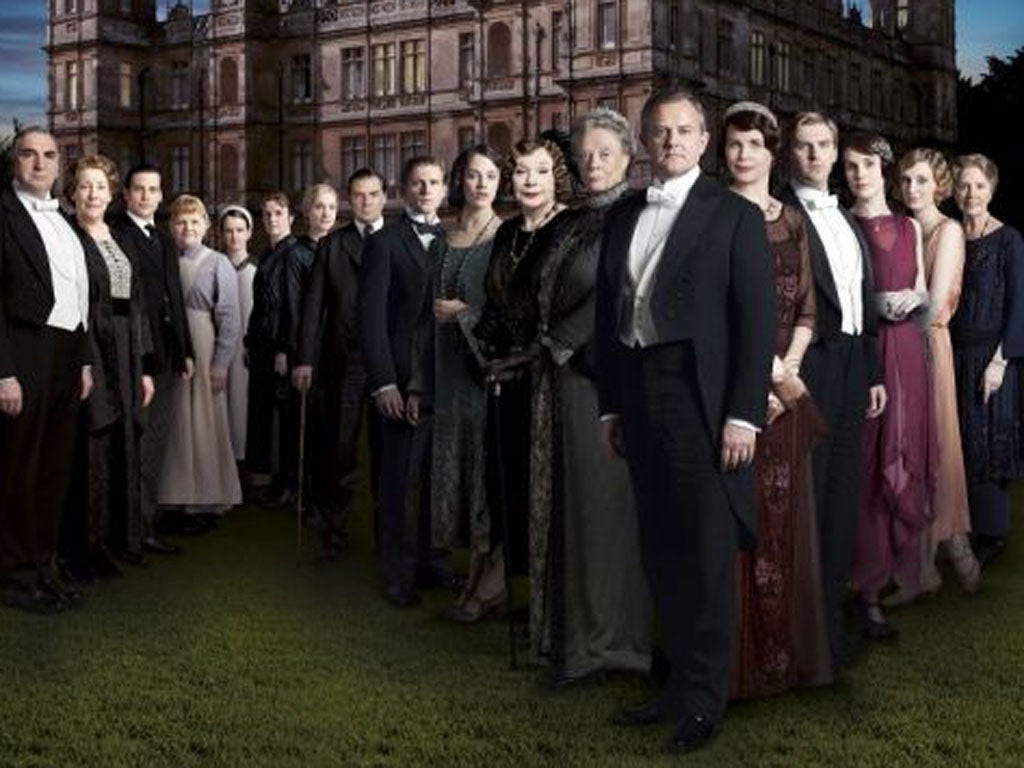Michelle Obama wants a sneak preview of Downton Abbey because, weirdly, it captures the zeitgeist
Why is it this buttoned-up drama is such a hit in the US?

Having been rather busy on the campaign trail up until last week, it's understandable that America's First Lady Michelle Obama is keen to curl up on the sofa with her hubby and a decent box set. She was so desperate to know what happens in Julian Fellowes' hit series Downton Abbey that she wrote to ITV1 requesting to see Series Three before it airs in America on 6 January next year.
The First Family could right now be sobbing their hearts outs at you-know-what, harrumphing in frustration at Earl Grantham's refusal to modernise and wondering how Lady Edith has gone from “an old man's drudge” to a sought-after newspaper columnist.
The programme has earned a slew of Emmy Awards, attracting audiences of 5.4m on US channel PBS and been described by Gawker as “everyone's favourite buttoned-up British passionstravaganza”.
But while the trials and errors of stiff upper lip aristocrats and their servants keep us Brits entertained, why is it so popular in America?
Unlike other UK television exports such as The Office, The Inbetweeners, Sherlock and (the impending) Gavin & Stacey, Downton has avoided being remade into a shinier, sleeker American-speaking animal. America, the Land of the Free, whose inhabitants claim it has no class system, loves a class-based drama as its appetite for Upstairs Downstairs in the 70s showed – but it probably doesn't want to admit to having the same social gulfs.
Of course, Fellowes' characters are based on institutions, ideas and historical precedents in this country that are more neatly associated with the Tories than staunch liberalism. But while Earl Grantham might appear pompous and overstuffed, the writer gives him an almost unbelievable empathy for his fellow man.
In Series Three we see him take pity on closet homosexual Thomas, who has misread the signs and made a pass at fellow servant Jimmy. The Earl ensures he isn't fired, noting that, as a schoolboy at Eton: “If I'd screamed blue murder every time someone tried to kiss me, I'd have been hoarse within a month.”
Fellowes has been criticised for making characters speak like 21st century gay rights activists and feminists rather than Suffragettes. The writer always supports the underdog, using lefty moral codes. In short, Lord Grantham is so far removed from Mitt Romney and the Republicans that if a Downton character were to announce she needed an abortion, he would probably call Doctor Clarkson himself – and foot the bill.
President Obama might have used one of the dowager Countess' best lines his campaign mantra: “Don't be defeatist, dear. It's very middle-class.” And the fact that he wasn't (defeated that is), suggests that the anachronistic Downton speaks much more for our time on both sides of the pond, than the one it is set in.
Join our commenting forum
Join thought-provoking conversations, follow other Independent readers and see their replies
Comments
Bookmark popover
Removed from bookmarks